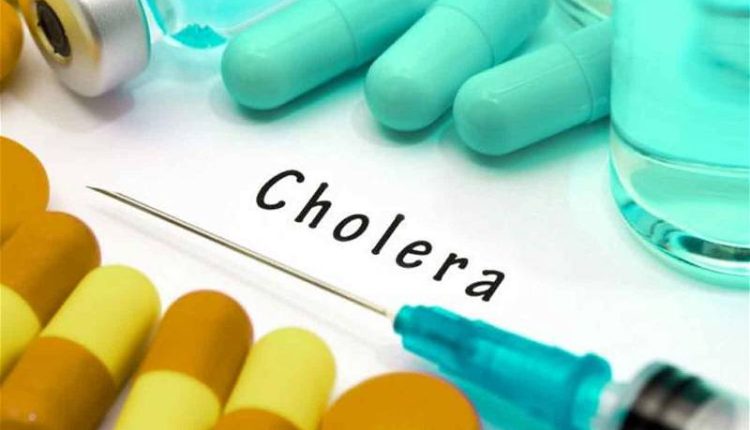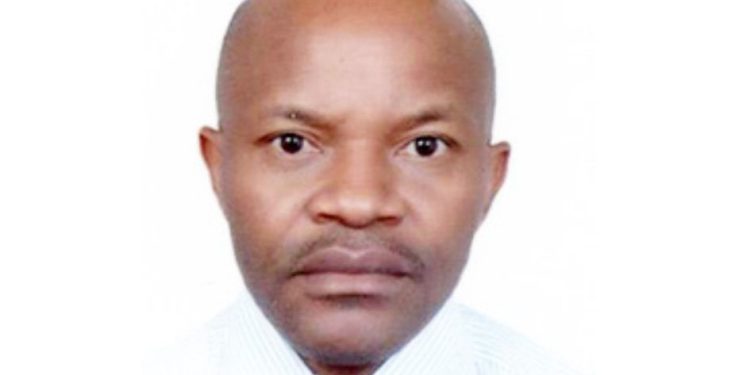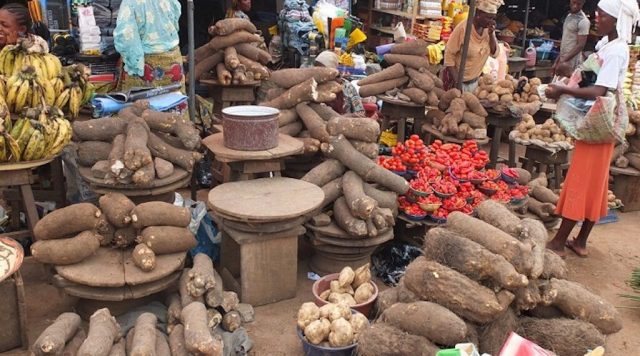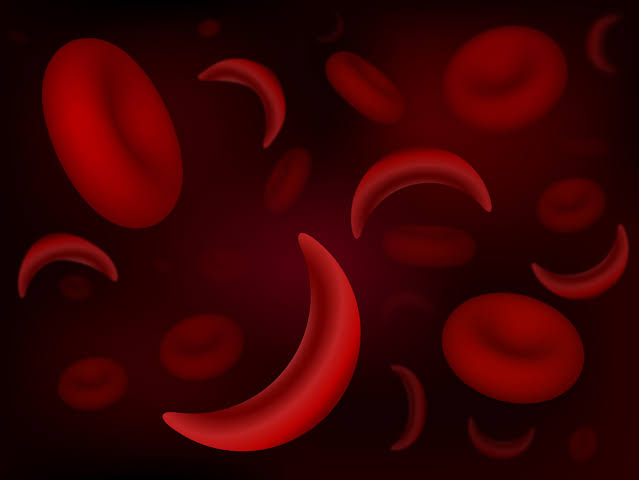By Daniel Anazia
Nigeria is currently battling many problems. In this report, DANIEL ANAZIA looks at how the country can work its way out of food insecurity.
Food security is a growing challenge across the globe today. It is a phenomenon that is multi-dimensional with economic, environmental and social angles. Unfortunately, the greater share of the population of the undernourished is located in the developing countries.
Efforts have been made to improve the quality as well as the production of food supplies. However, food insecurity remains prevalent, especially in Nigeria, as the country battles with insecurity, slow economic growth, multidimensional poverty, debt burden, unemployment, rising inflation and high food prices, among other socio-economic challenges.
As part of his administration’s short, medium and long-term strategies towards addressing the challenges of food affordability and accessibility in the country, President Bola Ahmed Tinubu in July declared an immediate ‘State of Emergency’ on food insecurity in the country.
The move, many have said, is part of an aggressive push to boost agricultural productivity and reduce the high prices of major staple foods in Nigeria.
In a statement, the then Special Adviser on Communication, Special Duties and Strategy, now Minister of Solid Minerals, Dele Alake, had noted: “Mr President is not unmindful of the rising cost of food and how it affects the citizens.
“While availability is not a problem, affordability has been a major issue for many Nigerians in all parts of the country. This has led to a significant drop in demand thereby undermining the viability of the entire agriculture and food value chain.”
The United Nations, through one of its agencies, the Food and Agriculture Organisation (FAO), stated that ‘food security’ is attained when all people, at all times, have physical and economic access to sufficient, safe and nutritious food that meets their dietary needs and food preferences for an active and healthy life.
It further explained it as the state at which individuals have sufficient food to generate a calorie requirement of about 2,200–2,300 calories per day for adult females and 2,900–3,000 (about 8-10 kg of maize flour) calories per day for adult males, while children require a lower calorie level to maintain adequate health.
At the beginning of the year, the UN agency in a report, projected that 25.3 million people in Nigeria would face acute food insecurity during the June to August 2023 lean season if urgent action is not taken. This is a projected increase from the estimated 19.45 million forecasts in 2022.
According to the report, the state of insecurity in northern Nigeria plays a major role in the projected rate of food insecurity in the country. “Acute food insecurity is mostly driven by the deterioration of security conditions and conflicts in northern states, which as of March 2022 (latest data available) have led to the displacement of about 3.17 million people and are constraining farmers’ access to their lands,” the report said.
In Nigeria, seven out of 10 citizens reportedly do not have enough food to eat, as it is the most basic of all human survival needs.
This was affirmed by the World Food Programme (WFP) in its food security update report titled: ‘HungerMapLIVE: Nigeria Insight and Key Trends’ published on July 27, 2023, where it declared that 19.5million Nigerians are faced with acute hunger.
According to the report, 76.3million Nigerians were faced with insufficient food consumption as of April 28, while the situation improved as the figure dropped to 74.1million on July 27, when the report was published.
This situation is worsened by yearly flooding, one of the country’s most prevalent natural disasters occasioned by the rainy season.
During the rainy seasons, from March to July and mid-August to mid-October in the south, and July to October in the north, major rivers often burst their banks, just like the dams burst too.
The unending violence in the Northeast states of Borno, Adamawa and Yobe (BAY), and armed banditry and kidnapping in Katsina, Sokoto, Kaduna, Benue and Niger states respectively have further exacerbated food access, just as climate change, inflation and rising food prices are said to be contributing to the alarming trend.
Of the 19.5million Nigerians faced with acute hunger, three million are in the northeast BAY states (Borno, Adamawa and Yobe). Alongside a deepening food crisis in these states, a worrying nutrition crisis is rapidly unfolding. Therefore, without immediate action, this figure is expected to increase to 4.4 million in the lean season.
The figure, according to the UN Resident and Humanitarian Coordinator, Matthias Schmale, includes, highly vulnerable displaced populations and returnees who are already struggling to survive a large-scale humanitarian crisis in which 8.3 million people need assistance.
He said, “the food security and nutrition situation across Nigeria is deeply concerning. I have visited nutrition stabilisation centres filled with children who are fighting to stay alive. We must act now to ensure they and others get the life-saving support they need.”
Schmale noted that children are the most vulnerable to food insecurity, stressing that approximately six of the 19.5million food-insecure Nigerians today are children under age five living in Borno, Adamawa, Yobe, Sokoto, Katsina and Zamfara states.
“There is a serious risk of mortality among children attributed to acute malnutrition. In the BAY states alone, the number of children suffering from acute malnutrition is expected to increase from 1.74 million in 2022 to two million in 2023.
“I am particularly concerned about the 700,000 children under five who are at risk of severe acute malnutrition. This is more than double the cases in 2022 and the highest levels projected since the nutrition crisis in 2016,” the UN chief said.
He continued: “Malnutrition will increase their risk of dying from common infections, including acute watery diarrhea, cholera and malaria, whose incidence will increase in the rainy season which coincides with the lean season. We cannot allow this to happen.
“The bad news is that many stabilisation centres and outpatient therapeutic feeding programmes have shut down due to lack of funding. The good news is that there is capacity among humanitarian partners to address both the food security and nutrition crisis.”
According to him, the increasingly alarming food security and nutrition crisis is primarily the result of years of protracted conflict and insecurity which continue to prevent many people from growing the food they need or earning an income to procure food.
“Conflict and insecurity have forced more than two million people, mainly from remote rural agricultural settlements to flee their homes in search of refuge in urban communities. Most are living in so-called garrison towns where they have few, if any, alternative livelihoods to farming.
“While there have been some improvements in access to agricultural lands in areas around the garrison towns in recent months, people who venture beyond the protective trenches surrounding these towns do so at great peril.
“Killings, abductions, forced recruitment and sexual and gender-based violence are some of the risks that farmers, foragers and others are exposed to outside the protective environs of these settlements,” Schmale stated.
He said the food and nutrition crisis in BAY states is compounded by multiple factors. Among them are the spiking fertiliser prices globally due to the conflict in Ukraine; high pump price of fuel and the corresponding high prices of foodstuffs necessitated by inflation.
According to him, the naira cash crisis earlier in the year disrupted the functioning of markets with adverse impacts on many people. Extreme weather shocks due to climate change, such as the floods witnessed in 2022, also exacerbated this crisis.
“The floods affected more than four million people across Nigeria and damaged hundreds of thousands of hectares of farms close to the harvest. These factors and others have combined to leave 4.3 million people at risk of severe hunger during the lean season, the period between harvests when people typically struggle to meet their food needs.
“According to the Government-led Cadre Harmonise analysis, more than 500,000 of these people will face emergency levels of food insecurity with extremely high rates of acute malnutrition and cases of mortality predicted over the period. Without additional funding, humanitarian organizations will only be able to reach about 300,000 of these at-risk people.
“To prevent this crisis from getting worse, humanitarian organisations as soon as possible need to prioritise the $396 million this year’s Humanitarian Response Plan appeal. This will allow them to rapidly scale up both food and nutrition assistance, and other supporting interventions, including clean water and sanitation, healthcare, protection and logistics,” he said.
Prevalence of insufficient food
consumption and market access
ACCORDING to the WFP HungerMapLIVE report, currently, the regions (states) with the highest prevalence of insufficient food consumption in order of severity are: Katsina (60 per cent), Borno (58 per cent), Zamfara (57 per cent), Sokoto (56 per cent), Bauchi (56 per cent), Niger (56 per cent), Yobe (55 per cent), Jigawa (55 per cent), Gombe (53 per cent), Kebbi (51 per cent), Taraba (49 per cent), and Kaduna (47 per cent).
These regions account for 50 per cent of the total number of people with insufficient food consumption in Nigeria – amounting to approximately 36.9 million people, increasing by 1.10 million (3.1 percent) compared to March this year.
To support the global COVID 19 response, the WFP expanded its near real-time remote monitoring systems to assess the food-based coping situation in Nigeria. And the regions with the highest prevalence of crisis or above crisis -level food-based coping strategies Yobe (52 per cent), Borno (46 per cent), Adamawa (45 per cent), Osun (37 per cent), Ondo (37 per cent), Ebonyi (37 per cent), Bayelsa (37 per cent), Oyo (36 per cent), Delta (36 per cent), Ekiti (33 per cent), Imo (32 per cent), and Anambra (31 per cent).
On the highest prevalence of challenges accessing markets, Borno leads with 71 per cent; Yobe (58 per cent), Adamawa (53 per cent), Zamfara (39 per cent), Katsina (39 per cent), Jigawa (37 per cent), Bauchi (37 per cent), Niger (33 per cent), Kano (33 per cent), Sokoto (32 per cent), Taraba (32 per cent), and Benue (30 per cent).
From the data showing the summary of food security and related metrics in Nigeria as of July 27, 2023, when the report was published, Kano, Katsina and Kaduna were the top three states hit by the challenges of insufficient food consumption and accessing markets respectively.
While Kano is the worst-hit state with 6.93 million of the referenced population facing insufficient food consumption, 4.86 million people are challenged with accessing markets.
Katsina is next with 4.67 million people faced with insufficient food consumption challenge, just as 3.02 million people are confronted with the challenge of accessing markets. Kaduna follows with 4.38 million people challenged with insufficient food consumption, while 2.39 million people are faced with the challenge of accessing markets.
Notwithstanding the insurgency in Adamawa State, the population of the people faced with insufficient food crisis is put at 2.11 million, while 2.63 million people battle with accessing markets. Borno recorded 3.41 million suffering an insufficient food crisis, just as 4.16 million of the referenced population cannot access the markets.
Yobe State had 2.38 million people affected with insufficient food challenge, while 2.50 million of the population cannot access the markets. Zamfara state recorded 1.98 million people affected by insufficient food crisis, while 1.34 million of the referenced population is unable to access the markets.
Despite being the food basket of the nation, Benue State had 2.09 million of its population battling insufficient food crisis, just as 1.87 million struggle to access the markets, while the neigbouring Nasarawa, another agrarian state, recorded 0.95 million people being confronted with insufficient food crisis, and 0.67 million people unable to access the markets.
As the country’s commercial nerve centre, Lagos recorded 3.07 million people suffering from insufficient food crises, and 2.69 million people unable to access the markets. This is notwithstanding the peace and calm enjoyed in the state.
Major drivers and factors
SOME of the major drivers and factors identified to be contributing to food insecurity in Nigeria include poverty, climate change, conflict and insecurity, increasing population, poor policy implementation, inefficient agricultural practices, post-harvest losses and low budgetary allocation to agriculture, among others.
Poverty
FOLLOWING the economic turbulence experienced in the country in the past decade, the number of people living in extreme poverty in Nigeria has been increasing significantly.
According to a 2023 data by the World Poverty Clock, a tool used to track poverty progress worldwide, there are 71 million extremely poor Nigerians, and the National Bureau of Statistics (NBS) classifies 133 million people as multi-dimensionally poor.
German online platform specialised in data gathering and visualisation, Statista, reported that the population of Nigerian men living in extreme poverty rose from 35.3 million in 2016 to 44.7 million in 2022, just as that of women increased from 34.7 million to 43.7 million in the same period.
Data on the platform’s website showed that in 2022, an estimated population of 88.4 million people in Nigeria lived in extreme poverty. While the number of men living on less than $1.90 per day in the country reached around 44.7 million, the count was at 43.7 million for women.
In effect, high levels of poverty make it difficult for people to access and afford nutritious food.
Harsh weather and floods
HARSH weather patterns, extreme temperatures, floods and droughts impact agricultural productivity and food production not only in Nigeria but across the globe. Within the past decades, the impact of climate conditions is evident on crop production across the country’s different regions.
Flooding is one of the effects of climate change and variability impacting Nigeria. Data from the Nigerian Meteorological Agency (NiMet) shows that the duration and intensity of rainfall have changed from normal across some states over the years, with devastating impacts on agricultural practices.
Last year, Nigeria witnessed one of its worst floods in the last 10 years, as hundreds of villages and urban centres particularly in Kogi, Anambra, Delta, Bayelsa, Rivers and Benue among others were submerged in waters, displacing over 2.4 million people.
According to official statistics, over 600 Nigerians died in the disaster, while expansive hectares of farmlands were also destroyed, with ripple effects on the country’s state of food availability, affordability and safety.
NiMET in its 2023 Seasonal Climate Predictions (SCP) forecast published in January stated that Nigeria and indeed Nigerians would witness heavy flood, as it revealed the impending flooding will lead to devastating effect on farming and result in food shortages.
Presenting the report, the Director-General of NiMET, Prof. Mansur Matazu, confirmed the fear of most Nigerians, and noted that flooding is a natural event and with the increase in climate change activities Nigerians are going to see more floods because climate change is due to increasing temperature.
His words: “Increased temperature means the atmosphere will be more pregnant to contain more water in the form of a water depot. And that means more rain and the rain will come in high intensity, but short duration. So the length of the season has been reducing, but the intensity and amount of the rain is increasing.
“That gives more volume of water within a limited time and that’s what now triggers the flash floods after rainfall in cities and the riverine floods, leading to overflowing of rivers, especially during July to September.”
Matazu stated that in the south, around April, May, and June, there is usually flash flood season in the region as the season begins around the period. He added that NiMET is working with the National Emergency Management Agency (NEMA) and the National Analytical Services. “They also complement our effort by providing flood forecasts around March and April,” he said.
The NEMA boss noted that the widespread flooding in the 2022 rainy season damaged more than 676,000 hectares of farmlands, which diminished harvests and increased the risk of food insecurity for families across the country.
He added that more extreme weather patterns affecting food security are anticipated in the future. He stated that starting in March, the coastal areas in the south-south, particularly Bayelsa, Akwa Ibom and Rivers, will experience torrential rains.
Conflict and insecurity
ANOTHER key driver or factor leading to food insecurity is conflict. In conflict, civilians are frequently deprived of their income sources and pushed into acute food insecurity. Food systems and markets are disrupted, pushing up food prices and sometimes leading to scarcities of water and fuel, or of food itself.
Violent conflicts such as, farmer-herder disputes, insurgency, banditry, gang wars and separatist agitations have continued to afflict the country with many killed and being killed, properties destroyed, worsening poverty, and displacement (an estimated 3.1 million internally displaced people as of November 2022).
The conflicts and worsening insecurity in certain regions of the country, especially in the northeast, northwest and north-central have equally disrupted agricultural activities and displaced farmers. This has hindered food production and distribution, as many farmers are unable to visit their farmlands for fear of attacks by bandits or herdsmen in the last 10 years.
According to Nigeria Watch in its Eleventh Report on Violence published in 2021, violence in Nigeria claimed 13,537 lives in 2021 alone, with Borno State accounting for the highest number of fatalities (1,853), followed by Zamfara (1,516), Kaduna (1,342), Niger (935), and Benue (625).
On the other hand, Gombe, Ekiti, Bayelsa, Adamawa, and Cross River states recorded the lowest number of fatalities in 2021. Zamfara State was the most dangerous state in 2021. It recorded 28.9 fatalities and homicides per 100,000 inhabitants.
By contrast, Gombe, Ekiti, and Kano were the least violent states.
Violence involving farmers and suspected herdsmen claimed 703 lives in 2021, against 616 in 2020. Overall, 21 states recorded fatalities resulting from pastoral conflicts. Benue, Plateau, and Ebonyi were most affected. By contrast, very few incidents related to such clashes were reported in Abia, Akwa Ibom, and Rivers.
HungerMapLIVE in its July 27 report noted that in June, 468 conflicts and violence-related fatalities were recorded in the country. From the data in the report, Borno is the worst-hit state with 3.08 per 100,000 people (39 percent). Plateau State is next with 1.45 per 100,000 people (14 percent)
Others are Zamfara 0.86 (6 per cent), Benue 0.68 (9 per cent), Katsina 0.50 (8 per cent), Taraba 0.38 (3 per cent), Imo 0.22 (3 per cent), Enugu 0.21 (2 per cent), Cross River 0.19 (1 per cent) and Edo 0.16 (1 per cent).
From the data above, the current situation of food security (prevalence and number of people with insufficient food consumption) in regions with the greatest incidence of conflict-related fatalities showed that Katsina is leading the pack with 4.67 million people.
Borno follows with 3.41 million people, Rivers is next with 2.13 people; Benue 2.09 million, Zamfara 1.98 million, Plateau 1.96 million, Taraba 1.68 million, Ogun 1.48, Enugu 1.22 million, Cross River 1.11 million, Edo 1.08 million and Imo 0.85 million.
In the current situation states and people unable to access the markets (prevalence and number of people with challenges accessing markets) following incidence of conflict-related fatalities, Borno leads with 4.16 million people.
It is followed by Katsina with 3.02 million; Niger 2.03 million, Rivers 1.97 million, Benue 1.87 million, Zamfara 1.34 million, Ogun 1.33 million, Plateau 1.24 million, Taraba 1.10 million, Edo 1.08 million, Enugu 1.04 million and Cross River 0.93 million.
Amnesty International in its newsletter of June 14, 2023, noted that more than 120 people have been killed and 468 conflict and violence-related fatalities since President Bola Ahmed Tinubu’s inauguration.
On June 9, in Plateau State, gunmen killed 25 people in Katako Village before killing another 13 individuals in Kusherki town on June 10, while a gunman shot dead at least 21 people on June 11.
Throughout May 2023, at least 100 people were killed in various communities of Benue State. Between 15-17 May, over 100 people were killed in the Mangu region of Plateau state. While in southern Kaduna, over 100 people were killed by gunmen between December 2022 and April 2023.
Responding to the gun violence, Amnesty International Acting Nigeria Director, Isa Sanusi, said: “It is horrific that attacks by gunmen have claimed at least 123 lives mere weeks after President Bola Tinubu assumed office on 29 May. Rural communities, always bracing themselves for the next bout of violence, are facing deadly attacks by rampaging killers. Protecting lives should be the utmost priority of the new government. The Nigerian authorities must urgently take steps to stop the bloodletting.
“The brazen failure of the authorities to protect the people of Nigeria is gradually becoming the ‘norm’ in the country. The government said it will enact security measures in response to these attacks, but these promises have not translated into meaningful action that protects the lives of vulnerable communities. The Nigerian authorities have also consistently failed to carry out independent, effective, impartial and thorough investigations into these killings – and this is fuelling impunity.”
UN’s $20million ramp-up allocation bailout
TO cushion the effect of food insecurity in this lean season, the United Nations allocated $20 million dollars to urgently ramp up the response to the alarming food security and nutrition crisis in the North-East region of Nigeria.
UN Deputy Spokesperson Farhan Haq disclosed this at a news conference at UN headquarters in New York. He said, “With nine million dollars from the Central Emergency Response Fund and $11 million from the Nigeria Humanitarian Fund, we will support the government-led response efforts across Borno, Adamawa and Yobe states. Assistance includes ready-to-eat food, access to clean water, health care and agriculture support.”
According to Haq, the emergency funding would help jumpstart the response, but noted that humanitarian partners need more to prevent widespread hunger and malnutrition. “The $1.3 billion humanitarian response plan for Nigeria is only 26 percent funded,” he added.
According to humanitarian partners, almost 700,000 children under five are likely to suffer from life-threatening severe acute malnutrition this year in this region and more than half a million people may face emergency levels of food insecurity during the lean season from June to August.
To roll back this tide of misfortune, the federal government must act fast because the country cannot afford to allow food insecurity to be added to the legion of problems facing the country.
SOURCE: The Guardian











